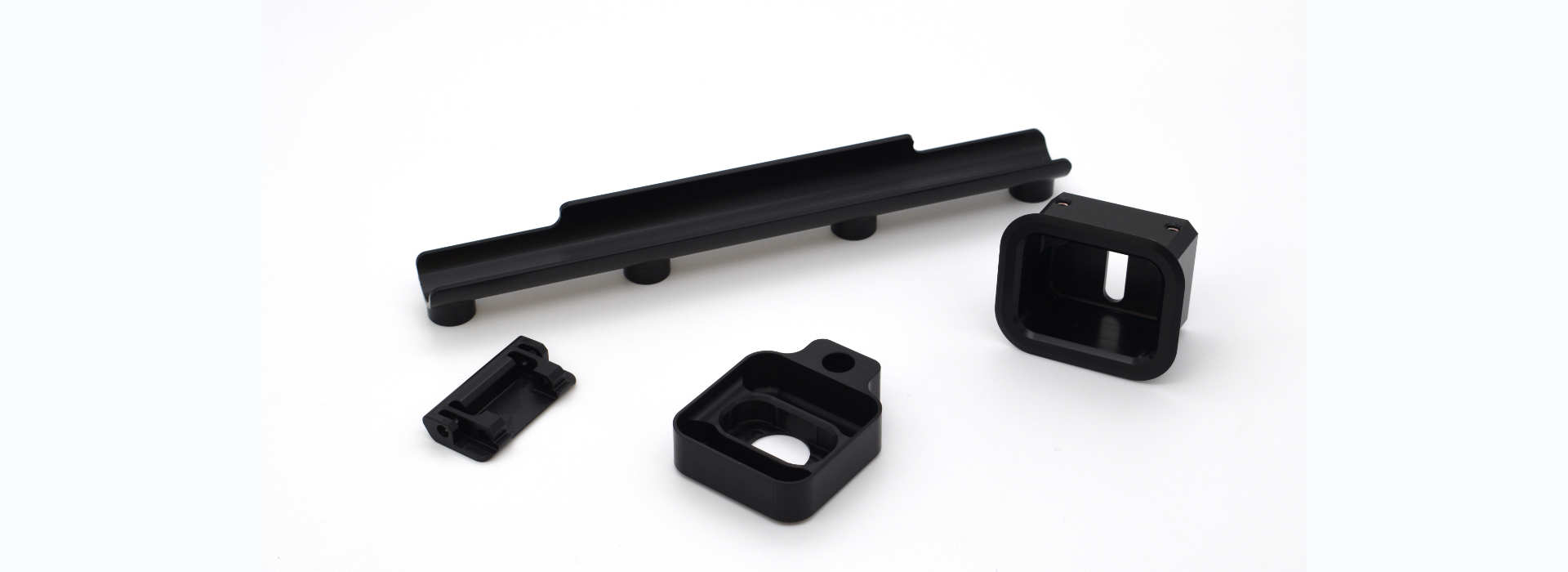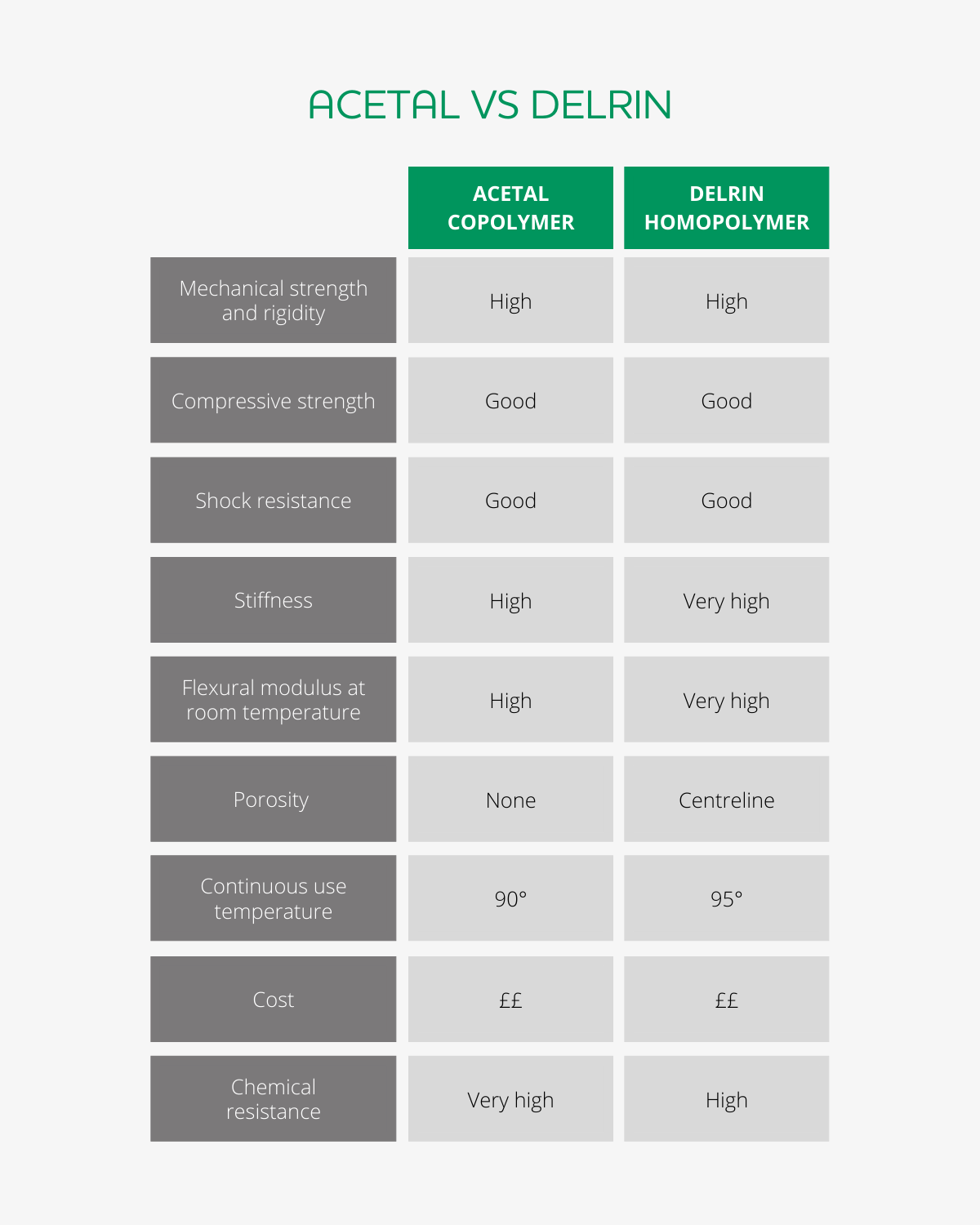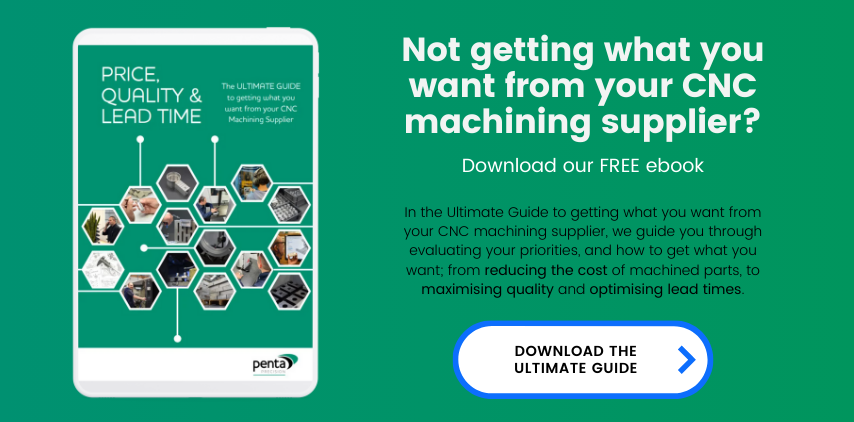 by Sam Brown
by Sam Brown

What’s the difference between Acetal and Delrin? A question we often get asked here at Penta Precision and the short answer is that Delrin® is a popular brand of acetal, made by DuPont.
Acetal and Delrin are both referred to as polyoxymethylene or POM and are known for being amongst the strongest and stiffest of all thermoplastics. POM is commonly specified in precision part applications where dimensional stability, stiffness and low friction are required.
What are the key differences between Delrin and acetal?
The raw material for Delrin is compounded solely by DuPont and is classified as “homopolymer”. All other acetal/POM are “copolymer” because they are compounded from various formulations and sources of the polyacetal base compound.
In highly regulated industries such as nuclear or aerospace, where acetal is selected as the material grade for a component application, Delrin is regularly specified because of this homopolymer formulation characteristic.
Are there any operational differences between Delrin and acetal?
There are subtle differences in the performance of Delrin and acetal at the extremes of their chemical, mechanical and electrical characteristics.
Delrin tends to be slightly stronger, stiffer, have higher flexural modulus at room temperature and can operate at a slightly higher service temperature.
For quick reference, we’ve put together this handy table showing the key similarities and differences between acetal copolymer and Delrin homopolymer:

Should I choose acetal or Delrin?
The truth is that for the majority of components, there will be little practical operational difference between Delrin and acetal.
Where the boundaries of their characteristics may be tested by an application, controlled testing is recommended to ensure the best-performing grade is selected.
For example, Delrin is prone to having centreline porosity, which means that there are tiny holes in the material. The consequence of this is that the end component may have some weaknesses, and liquids or gas can escape.
For medical and food applications, this is particularly undesirable as it can provide an environment for bacteria to grow.
Get expert advice on material selection
Selecting the optimal material for your CNC machined part demands careful consideration. Here at Penta, our dedicated team will work closely with you to balance performance, cost, and project timelines.
If you’d like to discuss your upcoming project, please give us a call on 023 9266 8334 or email .
